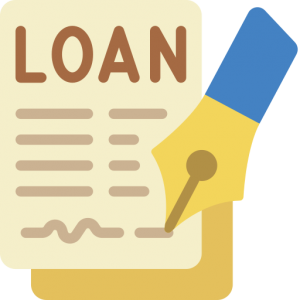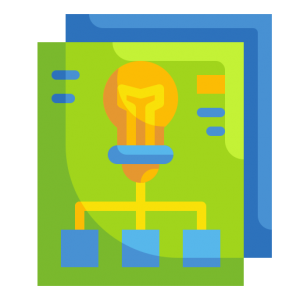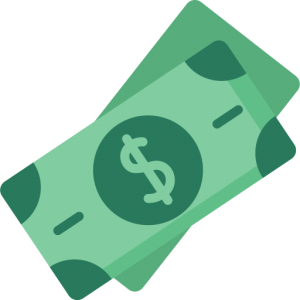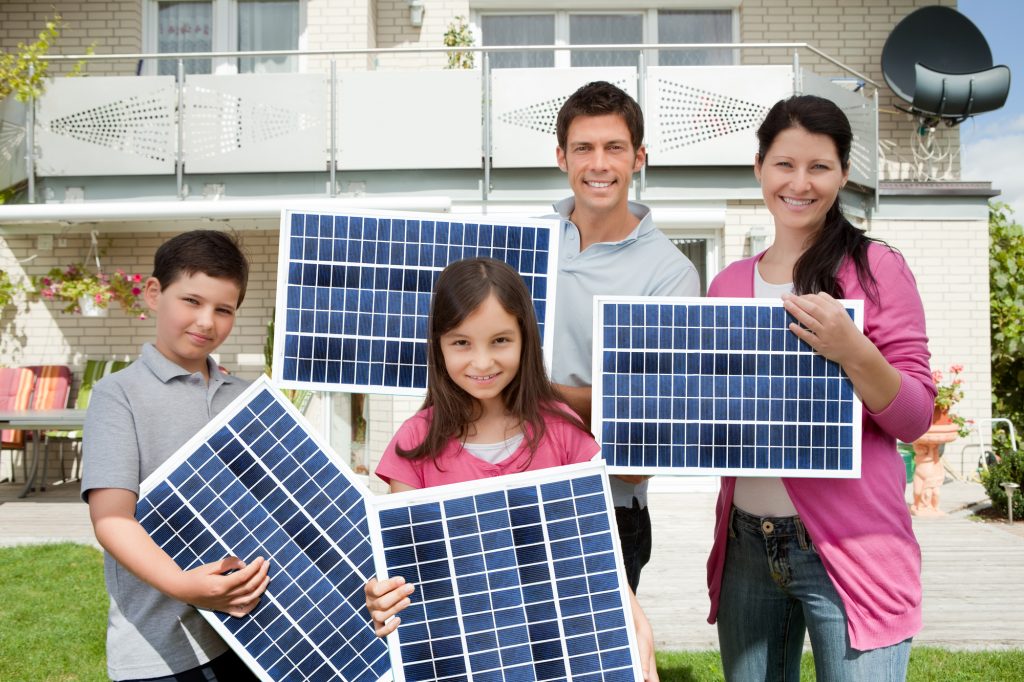Homeowner’s Guide To Solar Leasing Programs
There are two main ways to reap the benefits of renewable energy – installing a solar panel system or renting one from a solar company. You haven’t heard about the latter? Solar leases are becoming mainstream, so it’s time we talk about the available programs and their potential drawbacks.
What is a solar leasing program?
A solar lease is a financing option for using a solar panel without a hefty down payment. The homeowner rents the solar installation from a company and pays a fixed fee in exchange for the electricity produced by the system (typically 20% lower than what the grid produces).
A specific type of solar lease is a Power Purchase Agreement (PPA), which is more like paying a utility bill to a solar leasing company, based on the number of kilowatt-hours (kWh) your panel produces.
Solar lease vs solar PPA?
Solar leases and solar PPAs are very similar financing options for residential solar systems but they do have differences. In both cases, a solar company installs a panel on your roof that you do not own.
A solar lease allows you to rent the panels for the duration of the contract in exchange for a fixed fee. With a solar PPA, the company installs its own system on your roof and sells you the electricity it produces. In both cases, the monthly payment should be lower than what you’d otherwise pay on your electric bill (and you support green energy too).
Which is better? Hard to say. Different companies offer different terms and conditions and you should do some quick calculations to see which one will work out best for you. Don’t blindly follow whatever the salesperson tells you -get feedback from people who used the solar installer in the past.
How does a solar power lease work?
An average solar lease contract lasts approximately 15 to 20 years during which you are entitled to the energy produced by the company’s solar panel in exchange for a monthly fee.
At the end of the contract, you typically have three options (depending on the leasing company):
- Extend the lease
- Have the panels removed
- Purchase the solar installation for a discounted price
The last option is particularly attractive as it provides a route (albeit a long one) to solar panel ownership.
Am I qualified for a solar lease?
There are a few conditions you must fulfill to qualify for a solar lease or a PPA. Firstly, you need relatively high credit ratings (700+). This is important for the leasing company to give them confidence that you’ll keep your end of the contract.
Not all states offer solar lease options. Arizona, California, or Minnesota have solar leasing programs (they are just coming to Texas) while others don’t. You also need to be serviced by a major utility company with a solar incentive program in place — not a local or municipal power cooperative.
Lastly, your house must be suited for a solar installation. Prior to the start of the solar lease, the provider will come to your home to evaluate sun exposure, roof angle, access, and obstruction issues and establish the predicted solar panel system’s performance. If you’ve previously had your home assessed for solar with a positive outcome, you should be fine.
What are the usual terms in a solar leasing program?
No two solar leases are the same but there are some common traits that you should expect to find.
Solar lease contracts are typically 20 to 25 years long (the average lifespan of solar panels). When you sign a contract, the company will send a developer to install the solar panel system on your roof and set you up with a monitoring app (to track your panel’s performance).
Your monthly price and the price escalator will be stated in your contract. Price escalator is added to the contract to account for the rising cost of electricity – each year your lease payment will be slightly higher (between 1 and 5%).
You must pay your solar lease until the end of term – if you decide to exit early, you might have the pay the company out or be asked to buy the panels at a fair market value.
The benefits and drawbacks in joining a solar leasing program
In the end, are solar power purchase agreements and leases worth it? While they offer some attractive benefits, there are drawbacks you should be aware of.
Advantages in a solar leasing program
Zero upfront costs
There are no two ways about it – solar panels are expensive. The average installation can range between $15,000 to $25,000 and higher. A zero-down solar lease requires no upfront payment so you get the benefits without breaking the bank.
Reduce energy bills
Which one of us hasn’t lamented that electricity is so expensive? Your leased solar panels produce electricity for your household, so the backup grid only kicks in when your solar energy system can’t cope with the demand. Your bills should be on average 30% lower.
No maintenance management
If you opt for solar leases and PPAs, the responsibility for the maintenance of the solar installation lies not with you, but the solar company. Note that solar equipment is usually reliable and carries warranties, but it is a weight off your shoulders, regardless.
Predictable monthly payments
With a solar system lease, you are signing up for fixed electricity payments for the next 20 years. This is a solid plus for people who don’t like to be surprised by the utility bill waiting in the mailbox. However! This does not apply to PPAs where you pay a fixed rate, but it’s tied to the amount of electricity your solar power system produces each month.
Disadvantages in a solar leasing program
Sadly, there are some challenges associated with leased solar panels.
Uneligible for tax credits and other solar incentives
Owning a solar panel opens the door to a variety of tax breaks. There’s the federal solar tax credit of 26% to use towards the installation costs and various other state tax incentives. However, with solar loans, the leasing company scoops up all these benefits.
Locked in for a long time
When you rent solar panels, your journey to producing free, green electricity from your own panels will be very long. You are locked in with a monthly lease payment for 25 years which gives you little flexibility to change anything. Even if you save up enough money to buy your own panel, you can’t do that unless you also pay out the remainder of your lease.
Price escalator
Solar leases sometimes include price escalators to reflect the increase in average electricity prices. It means that your lease payment will go up, year after year. However, if electricity rates don’t go up, you might end up worse off than with electricity from your utility company.
No value-added to property
Solar panels installed on your roof increase your home’s property value by up to 4.1%. That’s a net benefit of an additional $9,274 for the median-valued home in the U.S.However, leased panels won’t add value to your property—because they are not yours.
Makes your Home harder to sell
If you decide to sell your house, you will either have to buy out the leasing company or transfer the lease to the next homeowner. That can deter some prospective buyers from going ahead with the purchase, as it represents an additional expense.
Where can I Find a Provider?
If you decided that a solar lease is a way to go, you should look for reliable leasing companies.
You can fill in an online form on their website and get an estimate and a breakdown of your solar financing options. Before you do, you should also contact your local utility company to find out if you are allowed to lease solar panels with your current plan.
Other options to acquire Solar Power
A solar lease might sound like a good deal but it isn’t by far the only setup to access savings from renewable energy. Let’s look at other options at your disposal:
 | Solar loan - With falling costs to install solar and moderate interest rates, homeowners can easily take out a small loan to pay for the installation. Solar loans allow you to buy solar without needing tens of thousands of dollars upfront. Instead, you make small payments and once your loan is paid off, the panels are completely yours. |
 | Solar energy plans - If you live in a deregulated U.S. state, you might shop around for electricity plans offered in your zip code by competitive providers. They often sell affordable, 100% solar-powered plans to reap the benefits of green energy. |
 | Cash purchase - Buying panels for cash has the highest return on investment but it's the most financially demanding option. Not many homeowners will have the resources to do this, but we include this option for completeness. |
FAQs
Is a solar lease worth it?
The average solar lease payments range between $50-$250 per month (and should work out to be approximately 20% lower than your average electric bill). Although you can save money on your utility monthly payments, you might struggle to sell your property or have the panels removed early. Our advice – weigh the pros and cons of leasing solar carefully to avoid making a mistake.
Is it better to buy or lease solar?
According to the Department of Energy, solar systems are cheaper than ever before – less than $3 a watt; making buying solar a very attractive option. In general, if you can afford it and are serious about panels, you should buy, rather than lease. The reason is that you’ll be able to claim local incentives, save money and your property price will also increase.
Can you pay off a solar lease?
If you need to exit your solar lease early (for example, if you are selling your house and are having trouble finding someone willing to take on your lease term), you might need to pay off your lease in total. This isn’t a great outcome for you, because you will lose money. Unless you have no other choice, you should avoid cancelling your solar lease early.
Why solar leases are bad?
Solar leases are a well-known financing option for accessing electricity bill savings with solar panels without the need to install solar. While they are genuine, solar leases offer several drawbacks – foregone tax incentives, locked-in lease payments, and possible difficulties with selling your home. You should consider leasing solar panels only if you don’t qualify for the federal tax credit.
Should you get a solar lease?
A leased solar system might be a brilliant choice for some people but a terrible investment for others. The key is to be aware of all the downfalls – foregone tax credits and incentives, possible difficulties in selling your house, and a risk of a property price fall. If you are looking for ways to save money on utility rates, you should start by shopping for a better rate in your local zipcode.
Updated on

